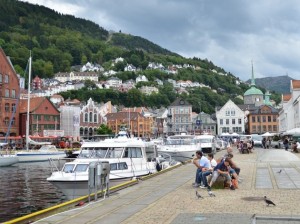Costa Rica News – Whenever I see the reports that Costa Rica is one of the happiest countries in the world, I always wonder. I look around and I see a high cost of living, a large number of people living in poverty, and so many people struggling to just get by, so I wondered what they based this on.
 When you see ICT and other people using the fact that Costa Rica is one of the happiest places in the world to try to boost real estate sales and increase the amount of tourist they have as clients, look into what they are basing this statement. Yes, Costa Rica is ranked as one of the happiest countries in the world by the Happy Planet Index.
When you see ICT and other people using the fact that Costa Rica is one of the happiest places in the world to try to boost real estate sales and increase the amount of tourist they have as clients, look into what they are basing this statement. Yes, Costa Rica is ranked as one of the happiest countries in the world by the Happy Planet Index.
The Happy Planet Index is a metric capable of measuring ‘the production of human well-being (not necessarily material goods) per unit of extraction of or imposition upon nature. As such, the HPI is not a measure of which are the happiest countries in the world. The HPI is best conceived as a measure of the environmental efficiency of supporting well-being in a given country. But this is what ICT (The Institute of Costa Rica Tourism) uses to try to convince people to come to Costa Rica. It is false advertising. If you read the small print you can see what they are really saying. It is like the car commercials that have the fine print right at the end of them.
Why Doesn’t Costa Rica want to tell the truth? If you have to lie to sell yourself then there should be red flags. If the measure is based on the fact that no one cares about anyone but themselves and that they live in their own little world where they do not have to give others respect or consider other people’s feelings then yep Costa Rica is the happiest.
As Per Chris Hellman at Forbes:
What does happiness mean to you? At its core it consists of being healthy, having enough food to feed yourself and your family and enough to money to do what you want and buy what you want. For most people that entails a nice home, decent clothes, a car or two, cable TV, good times with family and friends.
Furthermore, happiness means being able to speak what’s on your mind without fear, to worship the God of your choosing, and to feel safe and secure in your own home.
The World’s Happiest Countries:
1. Norway
2. Denmark
3. Sweden
4. Australia
5. New Zealand
6. Canada
7. Finland
8. The Netherlands
9. Switzerland
10. Ireland
Happiness means having opportunity – to get an education, to be an entrepreneur. What’s more satisfying than having a big idea and turning it into a thriving business, knowing all the way that the harder you work, the more reward you can expect?
With this in mind, six years ago researchers at the Legatum Institute, a London-based nonpartisan think tank, set out to rank the happiest countries in the world. But because “happy” carries too much of a touchy-feely connotation, they call it “prosperity.”
The objective of the institute’s work (which is part of billionaire Christopher Chandler’s Dubai-based Legatum Group) was to figure out what it is that makes happy countries happy – so that the less fortunate corners of the globe might have a benchmark to work toward.
The resulting Legatum Prosperity Index is based on a study of 142 countries comprising 96% of global population.  Nations are analyzed and ranked on 89 indicators in eight categories, such as education, government and economics. The inputs for the index are both objective and subjective. It’s not enough to just look at per capita GDP or unemployment rates. It also matters how hard people think it is to find jobs, or how convinced they are that hard work can bring success.
Nations are analyzed and ranked on 89 indicators in eight categories, such as education, government and economics. The inputs for the index are both objective and subjective. It’s not enough to just look at per capita GDP or unemployment rates. It also matters how hard people think it is to find jobs, or how convinced they are that hard work can bring success.
The core conceit: Prosperity is complex; achieving it relies on a confluence of factors that build on each other in a virtual circle.
So who are the happiest people in the world, as measured by Legatum? Norway takes the crown, followed by Denmark and Sweden (which leapfrogged Australia and New Zealand this year). Rounding out the Scandinavians is Finland, just a few steps behind in the seventh spot.
Luxembourg is the healthiest nation on Earth. Iceland is the safest. Switzerland has the world’s best economy and governance, according to Legatum.
What’s Norway got that the rest of the world doesn’t? For one thing, a stunning per capita GDP of $57,000 a year. Norwegians have the second-highest level of satisfaction with their standards of living: Ninety-five percent say they are satisfied with the freedom to choose the direction of their lives; an unparalleled 74% say other people can be trusted. It sure doesn’t hurt that the massive Norwegian welfare state is bankrolled by high taxes and big reserves of offshore oil and gas.
Indeed, most of the top 20 “happiest” countries according to the index are in western Europe. So what gives? What do these nations have in common that can somehow explain their prosperity?
Being an electoral democracy is virtually a given – of the top 20 most prosperous countries, only Singapore and Hong Kong aren’t democracies. Being small also seems to help. Big countries with heterogeneous populations are more unwieldy; disparate groups make it harder for a society to build social cohesion and trust.
What else? They are all borderline socialist states, with generous welfare benefits and lots of redistribution of wealth. Yet they don’t let that socialism cross the line into autocracy. Civil liberties are abundant (consider decriminalized drugs and prostitution in the Netherlands). There are few restrictions on the flow of capital or of labor.
So where does the United States rank? It’s at 12th place this year, slipping from 10th. According to Legatum, the U.S. has slipped in the areas of governance, personal freedom, and most troubling, in entrepreneurship & opportunity. America is supposed to be the land of opportunity, but Legatum notes “a decline in citizens’ perception that working hard gets you ahead.”


2 comments
I think the problem here lays in your definition and concept of “Happiness”. I have lived in several countries and I now reside in Costa Rica. Ticos (Costa Ricans) are some of the happiest people I know. They are also the most helpful, courteous and kind!
We have had several work teams come down to help in the community. Each group was over 40 people and they all lived in Tico homes. The overall most common remark at the end of their time here was “I can’t believe how happy these people are and they have so little!”.
My husband & I count it a privilege and a blessing to live in Costa Rica! Yes, Costa Rica must be one of the happiest countries on the Planet!
Your comment is very interesting rshanna. For a total of 3 months in C.R. during 2006 and early 2012 I have had similar experiences to the ones you describe.
My two bases of operation were the small village of Tambor at the tip of the Nicoya peninsula and, last year, in the moderate sized town of San Ramon de Alajuela.
On the peninsula, traveling by car and bus, I took some day trips to the towns of Paquera, Cobano, Montezuma, and Mal Pais and visited a family in the farming area north of Paquera. Getting to what I call the mainland using the launch, the ferry and an occasional Sansa flight from the Tambor airstrip, I went to San Jose several times and, on several different days, going northward from there I would stop at many towns all the way up to el Volcan Arenál where I stayed a couple of days at the foot of the volcano.
One of the nicest times I had was sleeping over night at a tiny Tico house in the neighborhood of Buenos Aires in the city of Palmares de Alajuela. I was surprised at how cold it got during the night. In the morning one of the daughters, walking barefoot on the cold concrete floor, set up a small hand grinder & ground up some large white kernals of corn which were then made into small tortillas. The mother made a beef based broth and some tea which all made for a refreshing breakfast.
I am interested to know in which communities you and your work groups were located as I am considering relocating to C.R.
Joe